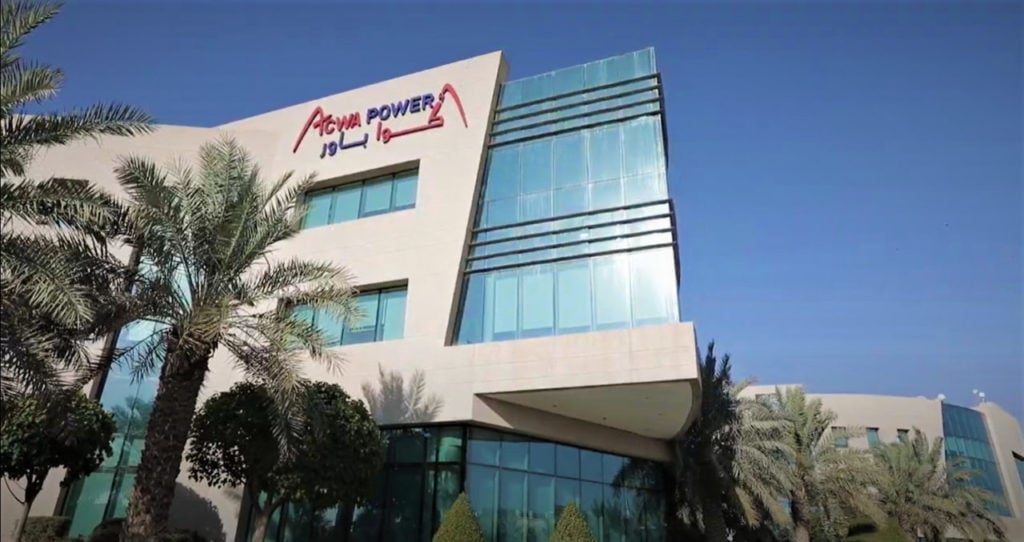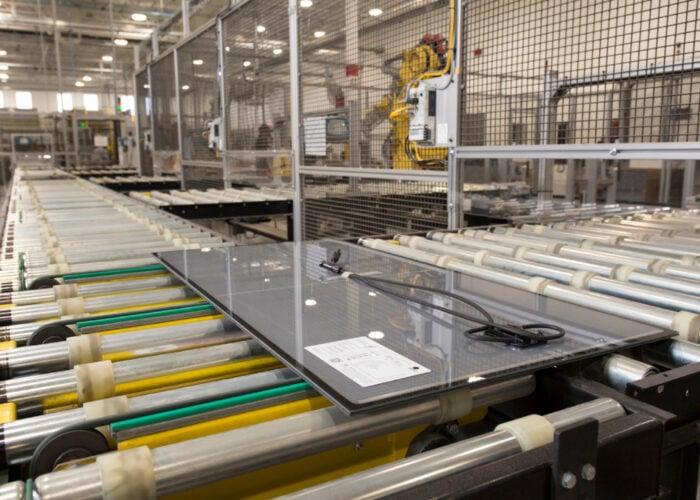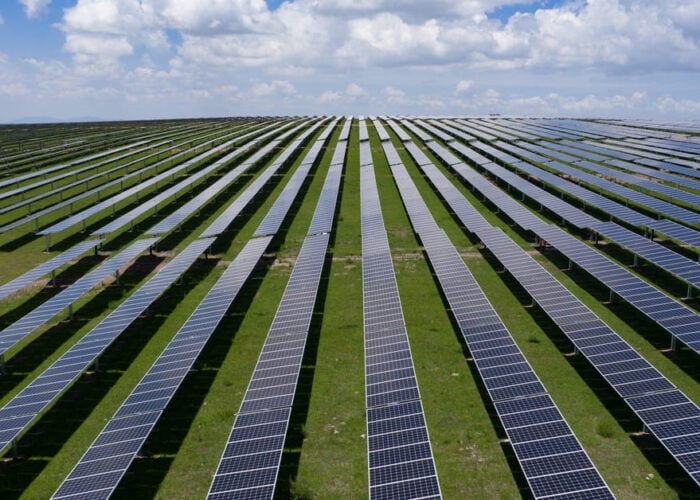
The Bank of China has supplied Saudi energy giant ACWA Power with an equity bridge loan worth US$80 million to support the construction of a portion of the latter’s Tashkent solar-plus-storage portfolio in Uzbekistan.
The funding from the Chinese state-owned bank will go towards the construction of a 200MW PV plant, which includes a 500MWh battery energy storage system (BESS). This project is part of the 1.4GW solar portfolio in the Uzbek capital, and last year, ACWA Power signed an engineering, procurement and construction (EPC) contract with the China Energy Group Corporation (CEEC) for the project.
Try Premium for just $1
- Full premium access for the first month at only $1
- Converts to an annual rate after 30 days unless cancelled
- Cancel anytime during the trial period
Premium Benefits
- Expert industry analysis and interviews
- Digital access to PV Tech Power journal
- Exclusive event discounts
Or get the full Premium subscription right away
Or continue reading this article for free
The companies hailed the “extensive cooperation” between ACWA Power and Chinese investors in the past, with Chinese firms investing more than US$10 billion into the Saudi company, and the Bank of China loan is the latest in this series of investments.
The project has also received financial support from Europe, with the European Bank for Reconstruction and Development (ERBD) providing a loan of US$140 million to the project, around one-quarter of the project’s total cost of US$546.3 million.
“This milestone is a strong signifier of the confluence between Saudi Arabia’s Vision 2030 and China’s Belt and Road Initiative, and we are delighted to deepen our cooperation with Bank of China to bring renewable energy at competitive tariffs to our key markets including Uzbekistan,” said Abdulhameed Al Muhaidib, ACWA Power chief financial officer.
The deal was agreed last October at the Third Belt and Road Forum for International Cooperation in China, and the bank’s funding will be split into two tranches, one delivered in US dollars and one in Chinese renminbi. This is the first loan agreement between a Chinese bank and Saudi Arabian company in the latter currency as China looks to expand its international infrastructure projects as part of its Belt and Road Initiative.
Earlier this year, Chinese module manufacturer JA Solar shipped 240MW of n-type modules to the portfolio, as Uzbekistan looks to expand its solar power generation. In 2022, the country had just 253MW of installed wind and solar capacity, but is looking to increase its solar generation capacity to 4GW by 2026 and between 5-7GW by 2030.
The International Energy Agency notes that Uzbekistan has “considerable” potential for renewable energy, with “a substantial amount” in the solar sector, and last month, UAE firm Masdar connected two projects, with a combined capacity of 511MW, to the country’s grid.






